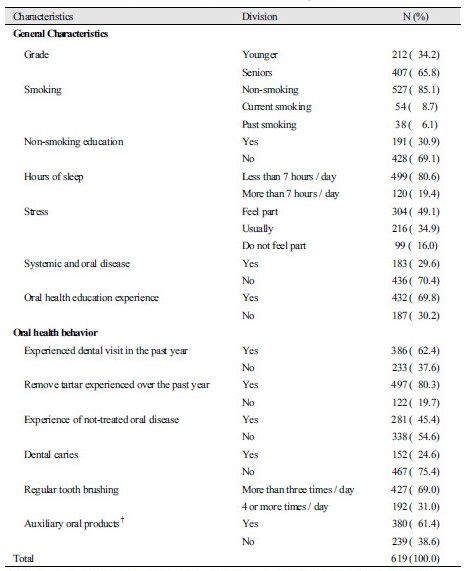Abstract
Objectives: The study was conducted to evaluate the effects of the students majoring in dental hygiene on their oral health beliefs and oral health behavior. Methods: The survey was conducted using self- administered questionnaires targeting 619 female students majoring in dental hygiene at three Universities in K and J province. The stronger health oral belief means higher score in susceptibility, severity, benefit and salience, but the higher score in barrier means stronger recognition in obstacle. Results: There was significant correlation between susceptibility and experience of not-treated oral disease (OR [odds ratio] 2.40; 95% CI [confidence interval] 1.73-3.34)’ and ‘dental caries (OR 2.36; 95% CI 1.25-4.45)’. Benefit had significant correlation with ‘visiting dental clinic (OR 1.58; 95% CI 1.14-2.19)’. Salience had significant correlation with ‘experience of not-treated oral disease (OR 0.70; 95% CI 0.52-0.94)’. Barrier had significant correlation with ‘visiting dental clinic (OR 0.73; 95% CI 0.56-0.95)’ and ‘removing oral plaque (OR 0.71; 95% CI 0.52-0.95)’. There was no significant correlation between oral health belief and ‘using of oral hygiene device’ or ‘regular tooth brushing’. Conclusions: Diverse oral health behaviors were affected by susceptibility, benefit, salience and barrier in oral health belief. The programs for oral health education and preventing oral disease should be prepared to change oral health belief to promote the oral health systematically based on the results of this study.
Acknowledgements
본 논문은 이보람(지도교수: 이영훈)의 박사학위 논문의 축약임.
Figures & Tables

Table 1. General characteristics of oral health behavior and the subjects


